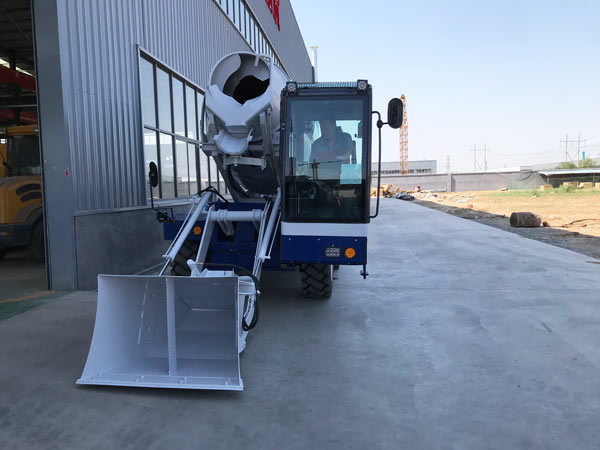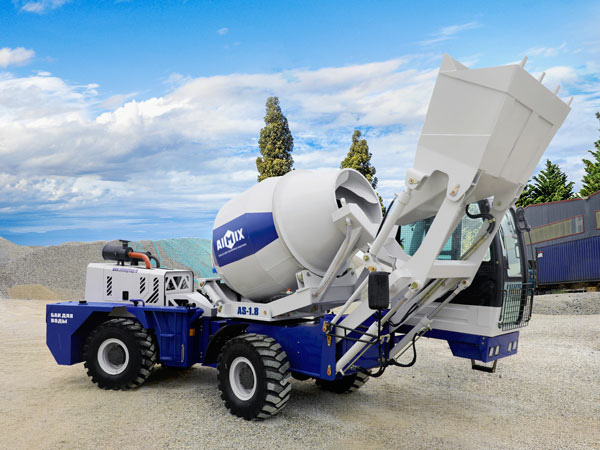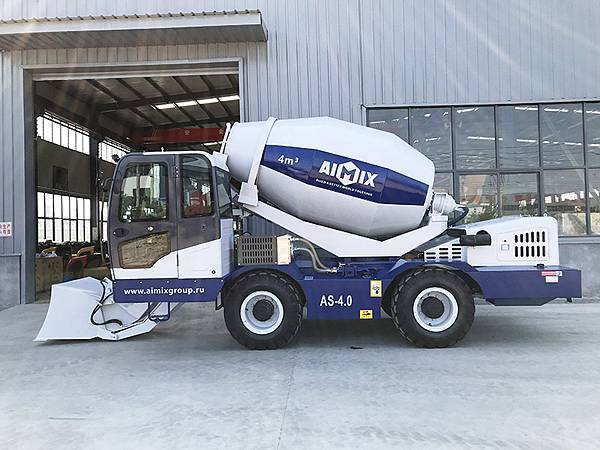


Understanding the efficiency and capacity of self-loading mixers can help you make an informed decision.
Self-loading mixers have revolutionized the construction industry. They combine the functionalities of different equipment into one powerful machine. Understanding their efficiency and capacity can help you make an informed decision. This article will explore the key aspects of self-loading mixers and their benefits.
Efficiency is a critical factor in construction projects. It impacts the speed, cost, and quality of the work. Self-loading mixers excel in efficiency, and using a self-loading mixer offers several advantages.

Self-loading mixers save time by combining multiple functions. They load, mix, transport, and discharge concrete without the need for additional equipment. This integration reduces the time spent on each task, speeding up the entire process.
These mixers reduce the need for manual labor. One operator can manage the entire process, from loading materials to discharging the mix. This efficiency reduces labor costs and minimizes human error, leading to better quality control.
Modern self-loading mixers are designed to be fuel-efficient. They consume less fuel compared to traditional mixers, reducing operational costs. Fuel efficiency also contributes to a smaller environmental footprint, making them a more sustainable choice.
The self-loading concrete mixer capacity refers to the volume of concrete it can mix in one batch. Understanding capacity is crucial for matching the mixer to your project needs.
Small capacity mixers range from 1.2 cubic meters to 2.5 cubic meters. They are ideal for small-scale projects.
These mixers are compact and easy to maneuver. They are perfect for tight spaces and small construction sites. Their lower capacity makes them cost-effective for minor projects, reducing wastage and operational costs.
Small-capacity mixers are commonly used in residential projects and small commercial buildings. They are also suitable for repair and maintenance tasks. Their compact size allows them to navigate through narrow spaces with ease.
Medium capacity mixers range from 2.6 cubic meters to 4.5 cubic meters. They offer a balance between capacity and maneuverability.
These mixers provide more capacity while remaining relatively easy to handle. They are versatile and can be used for a wide range of projects. Their increased capacity allows for larger batches, improving efficiency.
Medium-capacity mixers are suitable for medium-sized construction projects. They are often used in commercial construction, medium-scale residential developments, and infrastructure projects. Their versatility makes them a popular choice for various applications.

Large capacity mixers range from 4.6 cubic meters to 6.5 cubic meters or more. They are designed for heavy-duty tasks.
These mixers can handle large volumes of concrete, reducing the number of mixing cycles needed. This efficiency improves productivity and reduces downtime. They are equipped with powerful engines and advanced features to handle demanding tasks.
Large capacity mixers are ideal for large-scale construction projects. They are used in major infrastructure projects, large commercial developments, and extensive residential areas. Their high capacity ensures a steady supply of concrete, meeting the demands of large projects.
Selecting the right self-loading mixer depends on your project requirements. Consider the scale of your project, the amount of concrete needed, and the available working space.
Assess the scale of your project to determine the appropriate mixer size. Small projects benefit from compact mixers, while larger projects require higher capacity mixers.
Estimate the amount of concrete your project will need. This helps in selecting a mixer with the right capacity. Avoid overestimating, as this can lead to unnecessary costs and wastage.
Consider the available working space on your site. Ensure the mixer can maneuver easily without causing disruptions. Compact mixers are more suitable for confined spaces, while larger mixers require ample space for operation.
Understanding the efficiency and capacity of self-loading mixers is essential for making an informed decision. These mixers offer significant advantages in terms of time-saving, labor reduction, and fuel efficiency. By selecting the right mixer based on your project requirements, you can enhance productivity and ensure the success of your construction project. Whether you need a small, medium, or large capacity mixer, knowing these key aspects will help you choose the best option for your needs.
